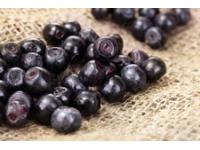Bilberry health benefits are mainly observed in the eyes– literally! From protecting cells to repairing them, bilberry has a number of excellent ocular benefits.
If you haven’t heard of bilberry fruit, you shouldn’t be surprised. The plant is extremely difficult to grow, and since it bears small fruit it is seldom cultivated. The fruit that does exist is primarily from wild plants that grow throughout northern and central Europe where they are more plentiful. In fact, it’s often called European blueberry.
For comparison, bilberries are similar to blueberries and huckleberries, but smaller and with a fuller taste. Like most natural foods, there are a number of health benefits associated with this berry, the most notable being improvement in eye health. British pilots during World War II actually ate bilberry jam before night raids in order to improve their vision.
Bilberry for Natural Eye Health
When you take a closer look at the berry, this bit of war lore is not too surprising. According to the book “100 Super Supplements for a Longer Life,” by Frank Murray, bilberry health benefits include protecting collagen structures found in the eyes. Bilberry can also prevent and treat macular degeneration and retinopathy. The anthocyanosides found in bilberry are known for their ability to help nourish and repair the tiny capillaries within the eye.
Bilberry for Cardiovascular Health
While eye health is a top benefit of bilberry, the benefits don’t stop there. Bilberry is also used to help improve cardiovascular health. According to a paper on bilberry written for the Center for Holistic Pediatric Education and Research by Dr. Kathi Kemper, bilberry can improve circulation and protect against circulatory-related disease. Dr. Kemper suggests that bilberry can also improve atherosclerosis and varicose veins. In addition, the bilberry bioflavonoids are beneficial to the connective tissue that lines blood vessels and binds ligaments throughout the body.
Bilberry as an Antioxidant
The plant is also an excellent source of antioxidants containing both anthocyanosides and Vitamin C. These antioxidants work to repair and reverse damage to cells from free radicals. This is one of the reasons you’ll find it as an ingredient in Jon Barron’s Ultimate Antioxidant formula.
More Natural Health Benefits of Bilberry
Historically, the berry has been credited with a number of health benefits including:
- strengthening blood vessels
- improving red blood cells
- stabilizing collagen tissues
- lowering cholesterol
- increasing retinal pigments
- lowering blood pressure
- improving eyesight
- improving night vision
- preventing cataracts
- anti-aging effects on collagen structures
- soothing a sore throat
- lowering blood sugar
- lowering cholesterol levels
- anticancer effects
- blocking tumor growth
Traditionally, the leaves and the berries have been used to help with scurvy, urinary tract issues or challenges, kidney problems, and diarrhea. And it’s for all of these reasons that Jon Barron uses bilberry leaf (listed on the label as European blueberry leaf) in his Accelerator high-energy, fuel-supplement shake formula.
How to Use Bilberry
There are a number of ways to consume this plant to take advantage of the many bilberry health benefits. In fact, in Poland, bilberries are put into sweet buns as a filling (such a bun is called a jagodzianka, and it is one of Poland’s most popular bakery products during summer). It can be harvested naturally from forests and eaten fresh in jams or other dishes. The fruit can also be dried, used in tea, or found in pill form.
For those without access to the fruit and looking to supplement, look for an extract standardized to 25% anthocyanins. 120 mg a day should suffice.
For more information, take a closer look at other natural antioxidants.




Health IMPROVEMENT
Amazing, extremely well researched information.
Thank you Sir
Bilberry and Eye Acuity
I read a few months ago that the “billberry jam helps nightfighter pilots see German aircraft” etc, was a disinformation ploy by the UK authorities during WWII, to hide from the Germans the fact that newly-installed radar was being used by UK fighter planes. At the time, the Germans believed the UK was not using radar, and UK Defense Command wanted to keep the charade going as long as possible. The radar was helping UK Fighter Command to accurately vector a tiny force of fighter planes to meet German bombers. This ability of the British to marshal resources against the incoming enemy planes was done to make the Germans think there was a large air defense capability when there really wasn’t. It’s time to put this myth to bed, Thanks, Charles